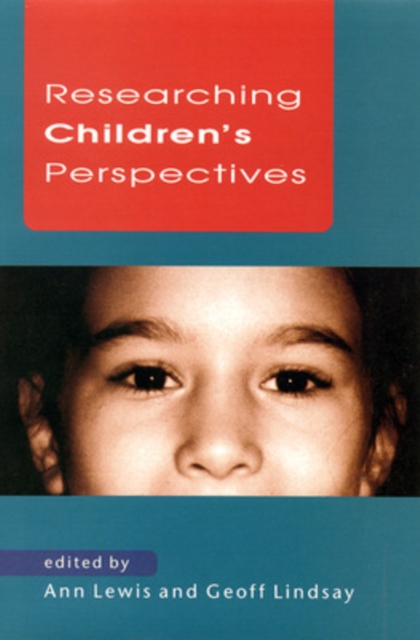
Researching Children's Perspectives PDF
by Ann Lewis, Geoff Lindsay
Part of the UK Higher Education OUP Humanities & Social Sciences Education OUP series
Description
"This is a book which I will return to over time. It carries a powerful, and empowering, message about the task of researching children's views...(It) deserves to find an automatic place in staffroom libraries. I happily recommed it." - Support for Learning"
The 1990s have been marked by a growing emphasis, in various professional contexts, on obtaining the views of clients, including children. This position is an international one, shared across the developed world, and encapsulated in the UN Convention on the rights of the child. This book addresses the issues and practicalities surrounding the obtaining of children's views, particularly in the research context. The book takes a deliberately and explicitly pluralist stance. Its distinctiveness rests on the scrutiny of methodological issues pertaining to the collection of children's views and practical applications. The book is structured around two main sections. Section 1 examines five aspects of theoretical and conceptual issues (ethical issues and codes of conduct, children's rights, the legal perspective, developmental dimensions and sociological issues). Section 2 illustrates these aspects by focusing on methods and applications in obtaining children's views in specific projects.
The book is aimed at researchers and graduate students in psychology, social sciences, education, health and law. It will also be of value to a range of professionals involved in eliciting children's views (e.g. psychologists, teachers, social workers, medical workers and the police).
Information
-
Download - Immediately Available
- Format:PDF
- Publisher:McGraw-Hill Education
- Publication Date:16/12/1999
- Category:
- ISBN:9780335232130
Other Formats
- Paperback / softback from £29.95
Information
-
Download - Immediately Available
- Format:PDF
- Publisher:McGraw-Hill Education
- Publication Date:16/12/1999
- Category:
- ISBN:9780335232130










